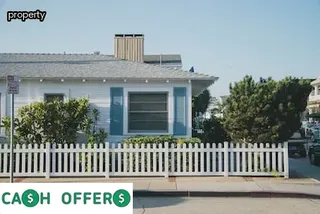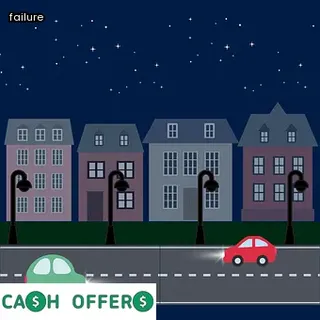The Louisiana eviction process may vary depending on the circumstances, but generally speaking it follows a set timeline that tenants and landlords should be aware of. The process begins when the landlord serves the tenant with a written Notice to Vacate, which must be served either personally or by mail.
If the tenant does not respond within three days, then the landlord can file an Unlawful Detainer suit in court. After filing, the tenant will be served with a Summons and Petition for Unlawful Detainer which must be answered within seven days or else a default judgment could be entered against them.
After both parties have had their say in court, the judge will make their ruling which could require that the tenant vacate within three to five days or they could also order an eviction execution if it is necessary. Generally speaking, it takes anywhere from two weeks to one month to complete the entire eviction timeline in Louisiana depending on how quickly both parties act during each step of the process.

The legal steps for tenant removal in Louisiana vary depending on the type of eviction. Generally, landlords must give tenants a written notice to vacate the property and provide them with the opportunity to fix any issues that led to the eviction.
If tenants do not comply with the notice, landlords can file an eviction lawsuit in court and get a court order for possession of the property. Tenants may have the right to appeal, but they must do so within five days of receiving the court order.
The sheriff will then serve eviction papers on behalf of the landlord. Once served, tenants typically have 24 hours to leave or be forcibly removed from their residence.
Depending on how quickly all steps are completed, it can take anywhere from one to three weeks for an eviction process in Louisiana to be completed.
Being evicted in Louisiana can be a difficult and overwhelming experience. It is important to understand your rights and the steps you must take to defend yourself.
If you are being evicted, there are several strategies you can use to protect your rights and potentially prevent eviction. First, it is important to know that you have the right to receive a written notice of eviction from the landlord before any legal action is taken.
You should also be aware that Louisiana allows landlords to begin eviction proceedings without using the court system if they follow certain procedures. Additionally, if you are served with an eviction notice, it is beneficial to consult with an attorney about potential defenses that may be available in your situation.
Furthermore, depending on the circumstances of the case, tenants may be able to negotiate with their landlord for more time or other arrangements such as partial payment plans or lease modifications. Finally, if an eviction case goes through court proceedings, tenants have the right to present evidence and witnesses on their behalf at a hearing.
Understanding these strategies can help tenants protect their rights during an eviction process in Louisiana and make sure they receive fair treatment throughout the entire process.

Louisiana eviction rules are designed to protect tenants and landlords alike. The process begins with a formal notice of eviction, which must be served to the tenant in person or sent by certified mail.
This notice must include the reason for eviction, the amount owed, and a time period in which payment is due. If the tenant fails to pay in that time period, then the landlord may proceed with filing an eviction lawsuit in court.
The court will then issue a judgment and order for eviction if the tenant does not respond or contest the action. Once this occurs, the sheriff can then enforce the order by physically removing any occupants from the property and authorizing their possessions to be removed as well.
While this process typically takes about two weeks from start to finish, it can vary depending on how quickly all necessary paperwork is filed and processed by both parties and ultimately resolved by the court.
In the state of Louisiana, there are certain justifiable grounds for eviction. These typically involve a tenant breaching the terms of their lease agreement due to failure to pay rent or fees, engaging in illegal activity on the premises, violating health and safety codes, or causing significant damage to the property.
A landlord may also be able to legally evict a tenant if they need to make major repairs that require the rental unit to be vacated. Furthermore, if a tenant has stayed on past their lease term without permission from the landlord they may be subject to eviction proceedings.
Tenants should always read through their lease agreement thoroughly and understand all of their rights and obligations so that they can avoid an unnecessary eviction.

In Louisiana, it is illegal to evict a tenant without following the proper process. If an eviction is done without following the law, landlords may face serious penalties, including being held responsible for any damages that have occurred due to the illegal eviction.
The most common penalty is being liable for reimbursements such as unpaid rent or repair costs. In extreme cases, landlords can also be charged with criminal offenses and face hefty fines or jail time if found guilty of unlawful evictions.
Tenants who are victims of illegal evictions may also be able to file a civil lawsuit against their landlord in order to receive compensation for their losses incurred during the eviction process. It is important for both tenants and landlords alike to understand the laws governing evictions in Louisiana in order to avoid any costly legal repercussions from engaging in an illegal eviction.
If you are facing eviction in Louisiana, it is important to seek advice from a landlord-tenant attorney. An experienced attorney can provide legal counsel on your rights and obligations as a tenant under local and state law.
An attorney can also review the details of your lease agreement and any other applicable documents related to the eviction process. Furthermore, they can give you an estimate of how long the entire eviction process will take in your specific situation.
From filing a notice of eviction with the court to attending an eviction hearing, a lawyer can provide guidance on navigating each step of the process and advocating for your interests throughout.

The cost of an eviction in Louisiana can vary depending on several factors. Landlords should factor in court costs, attorney's fees, and the cost of lost rent when calculating the total amount of an eviction.
The court filing fee for an eviction case is typically around $150, but this amount may be higher if multiple parties are listed on the lawsuit. Additionally, a landlord may incur legal fees if they hire an attorney to handle the case.
Lastly, missed rent payments can add up quickly during the eviction process which could add hundreds or even thousands of dollars to the overall price tag. It is important to note that all evictions must follow certain state laws and regulations so it is wise to consult with a professional before beginning any action against a tenant.
There are a number of commonly asked questions surrounding the eviction process in Louisiana. How long does it take to complete an eviction? Generally, the duration of the eviction process can vary from one jurisdiction to another, but typically it can take anywhere from one to three months for the entire process to be completed.
It is important to note that this timeline also depends on whether or not a tenant decides to file an appeal after receiving an eviction notice. Additionally, if the landlord and tenant enter into negotiations, it can also impact how quickly the eviction proceedings move forward.
Other questions related to evictions concern whether landlords are required to provide other forms of notice before filing for an eviction or what type of documentation must be included when filing for an eviction. Understanding these requirements is essential for both landlords and tenants as they navigate through the eviction process in Louisiana.

Eviction from a property in Louisiana can be initiated without cause, meaning that the landlord does not need to provide justification for the eviction. When this happens, the tenant must be given 30 days notice in writing prior to their lease being terminated.
If the tenant does not move out within this timeframe, the landlord may then take legal action and file an eviction suit with a court of law. The court will then issue a hearing date and summon both parties to appear.
After this hearing, if the judge rules in favor of the landlord then they will receive an order of possession from the court authorizing them to remove any occupants from the rented property. The entire process usually takes around 45-60 days from start to finish, but it can vary depending on how quickly documents are filed with the court.
When a tenant is in violation of their lease agreement, the landlord may choose to terminate the lease and proceed with evicting the tenant. In Louisiana, there are specific grounds for which a landlord can legally terminate a lease, including nonpayment of rent, damage to property, or violation of any other term of the lease.
After delivering written notice to the tenant of their intention to terminate the lease for cause, the landlord must then file an eviction lawsuit in court. The length of time it takes from filing to final resolution can vary significantly depending on how quickly both parties respond and participate in court proceedings.
To avoid lengthy delays, landlords should provide clear evidence of violations and ensure that all paperwork is complete before filing.

In Louisiana, tenants must receive a notice before an eviction can take place. However, the legal system allows for landlords to waive the notice period in certain cases.
Waiving the notice period can be beneficial for landlords who are seeking to quickly regain possession of their property and have already exhausted other forms of recourse. For example, if a tenant has been engaging in criminal activity or is substantially behind on rent payments, then a landlord may wish to waive the usual waiting period before issuing an evicting notice.
In addition, if a tenant is endangering other individuals on the property or causing considerable damage, then the landlord may also waive their right to receive prior written notification of an eviction. The court has final say on whether or not such waivers will be granted but understanding these reasons can help landlords determine when it makes sense to proceed without giving tenants advance warning of an impending eviction.
The average duration of the Louisiana eviction process can vary depending on the specific circumstances. Generally, however, it takes between two and three months from start to finish.
The process begins when a landlord serves a written notice to their tenant that includes the reason for eviction and how much time they have to move out. If the tenant does not comply, the landlord can then file an action in court.
After filing, it usually takes around two weeks for a hearing date to be set by a judge. During this hearing, both sides will present their cases and the judge will determine if an eviction should take place or if other agreements can be made.
If an eviction is ordered, the landlord must then serve the tenant with a writ of possession; this document provides notification that they must vacate the property within 24 hours. Once all parties are off the property, the landlord is free to take possession of it again.

Louisiana rental laws are designed to protect tenants, making sure they have the right to a safe and habitable living space and that they are not wrongfully evicted by their landlord. However, when it comes to the eviction process, many tenants may feel uncertain about their rights and how long an eviction can take.
It is important for both landlords and tenants to be aware of their rights under Louisiana rental laws and how these laws can affect the length of an eviction process. For example, landlords must provide a 30-day written notice of termination before initiating proceedings in court; this may add some time onto the total timeline.
Additionally, if a tenant contests an eviction notice during this period, it can result in delays. Finally, depending on the individual case, the final decision could take weeks or even months if it goes to trial.
Knowing this information can help ensure that both parties are on the same page throughout the entire process.
When looking at the eviction process in Louisiana, it is important to compare it to other states. For example, in Texas, evictions take an average of 18 days from filing to finalization.
In California, the process can be much longer, taking up to three months or more depending on the circumstances. In Florida, tenants are given seven days' notice before a landlord may file for an eviction and the entire process typically takes about a month.
Each state has its own unique set of rules and regulations for evicting tenants, so it is important to understand how each one works when considering the Louisiana eviction process. The time frame for evictions in Louisiana is generally between 14-30 days, but certain factors such as whether or not the tenant goes to court can affect this timeline.
It is essential that landlords fully understand the laws and processes of their state when dealing with evictions so they can ensure their rights are protected and that all procedures are followed properly.

When researching Louisiana's eviction process, it is important to evaluate the sources of information to ensure that they are reliable. Primary sources, such as state laws and local court decisions, should be consulted first in order to gain a comprehensive understanding of the state's eviction process and tenants' rights.
Furthermore, landlords and tenants should research the relevant statutes and regulations regarding evictions in their area. Additionally, secondary sources such as tenant advocacy organizations or legal aid societies can provide valuable insight on the eviction process and tenants' rights.
Landlords and tenants should make sure to verify any information received from these organizations with primary sources so that the information is accurate and up-to-date. Lastly, landlords and tenants should look for reviews from other individuals who have gone through the same process when evaluating sources on evictions and tenants' rights.
Understanding the legal precedents regarding tenants' rights is a key aspect of the Louisiana eviction process. As per state law, landlords must provide tenants with a written notice that outlines their eviction and gives them time to vacate the property.
The amount of notice required varies depending on the reason for eviction, but it is generally at least thirty days. Once this period has expired, the landlord may file an action with a court to evict the tenant.
In order to successfully complete the eviction process, it is important to be aware of all relevant legal precedents which outline tenants' rights and responsibilities. These include the right to receive notice prior to eviction, access to an attorney when necessary, and other protections provided by state law.
It is also important to understand that evictions are not final until all legal proceedings have been completed; if a tenant fails to comply with any court orders or requests during this time they may still be subject to eviction. By familiarizing oneself with these laws and regulations, landlords can more confidently navigate the Louisiana eviction process in a timely manner.

The process of evicting a tenant in Louisiana can be lengthy and costly. Before taking such drastic measures, it can be beneficial to consider other alternatives that may resolve the issue more quickly and cost-effectively.
One possible solution could be to negotiate with the tenant about payment options for any back rent owed, or to ask them to leave on an agreed-upon date. This could avoid the lengthy and costly legal proceedings associated with initiating an eviction.
Alternatively, depending on the individual situation, filing a suit against the tenant might be a more effective way to recoup unpaid rent. However, this option can also take weeks or months before a judgment is reached and executed.
It is important to weigh all of the benefits and drawbacks of each option carefully before making a decision that could have lasting financial implications and affect your relationship with your tenants.
In Louisiana, the eviction process is regulated by the state's landlord-tenant laws. These laws cover various aspects of the rental relationship between landlords and tenants, including when and how an eviction can take place.
Unless a tenant violates the terms of their lease agreement or fails to pay rent, a landlord must provide 30 days' notice before they can begin the eviction process. If it is determined that an eviction is necessary, landlords must submit a written request to their local court in order to start proceedings.
The court will then issue an Order of Eviction and notify both parties of the decision. After this, if the tenant fails to vacate the premises within five days, a writ of possession must be filed with the court and served on the tenant.
Once this has been done, law enforcement officers may enter onto the property and remove any individuals who are still living there. It is important for both landlords and tenants to understand all applicable rental laws in Louisiana before entering into any kind of agreement so as to ensure that all parties involved are aware of their rights and responsibilities throughout the duration of their tenancy.
Evicting a tenant in Louisiana can be a lengthy process. The time it takes to complete the eviction process varies depending on the type of eviction and the circumstances of each particular case.
Generally speaking, however, an uncontested eviction can take anywhere from 45 to 90 days from start to finish when all parties follow the letter of the law. If there is a dispute between the landlord and tenant, or if the landlord fails to follow specific steps in accordance with Louisiana's laws, this timeline can be extended even further.
In order for an eviction to be successful, landlords must first give their tenants written notice in compliance with Louisiana's laws. This includes providing detailed information about why they are being evicted and how many days they have until they must vacate their residence.
After this initial notice is served, landlords must then file any required paperwork with local courts and wait for a hearing date before they can proceed with evicting their tenant. Once both parties appear in court, a judge will make a ruling as to whether or not the tenant must leave their residence within a certain period of time.
It is important for landlords to remember that this process does not just end once the tenant leaves - landlords must also follow up by filing additional paperwork with local courts if necessary. Understanding the complexities involved in Louisiana's eviction process is essential for landlords looking to evict problem tenants quickly and effectively.

Yes, Louisiana residents have 30 days after receiving an eviction notice before they must vacate the leased property. According to the Louisiana Residential Landlord and Tenant Act, tenants are given 30 days to move out after an eviction notice is served.
This means that the entire Louisiana eviction process will take a minimum of 30 days, depending on how quickly the tenant can move out. During this time, landlords must follow certain legal procedures in order to validly evict a tenant.
The landlord must first provide written notice to the tenant that outlines why they are being evicted and specify how long they have to leave the property. After this period passes, a court hearing will take place where a judge will make a final decision regarding whether or not the eviction should proceed.
If eviction is confirmed by the court, then the tenant must vacate within 7 days. It's important for both landlords and tenants to understand their rights and responsibilities throughout the Louisiana eviction process in order to ensure compliance with state law.
In Louisiana, the amount of time you have after an eviction notice is served depends on the type of eviction. If a tenant fails to pay rent, the landlord may serve a 10-Day Notice to Pay Rent or Quit.
If the tenant does not pay rent within 10 days of being served, then the landlord may begin eviction proceedings. For other types of evictions such as material noncompliance with lease terms or nuisance behavior, landlords must serve a 7-Day Notice to Cure or Quit before beginning eviction proceedings.
In all cases, once the landlord files their Petition for Eviction and it is accepted by the court system, there is generally a hearing scheduled within 15-30 days that will decide whether or not an order for possession will be granted. After this order is granted, tenants in Louisiana typically have 24 hours to vacate the premises.
When you receive an eviction notice in Louisiana, it means the landlord has initiated a legal process to have you removed from their property. This process is called an "unlawful detainer" and it must go through the court system.
The first step is for the landlord to serve you with a summons and complaint. After receiving this notice, you'll have five days to file an answer or other response with the court.
If you do not respond within this time frame, it's likely that the court will rule in favor of the landlord. Once a judgment is entered against you, your landlord can then obtain a writ of possession from the court.
A constable or sheriff will be sent out to give you a three-day notice to vacate the property and collect any remaining rent due. After that, if you still remain on the premises, they may use reasonable force to remove you and your belongings from the property.
Overall, depending on how quickly each step is completed, it generally takes between two weeks to six weeks for an eviction process in Louisiana to be completed.
A: The eviction process typically takes between 30-40 days in Louisiana from the time the Notice to Quit is served on the tenant.
A: Generally, an eviction process in Louisiana will take at least 30 days from when the Notice to Quit is served on the tenant.

A: In Louisiana, the eviction process can typically take between two to four weeks, depending on whether or not the tenant responds to the Notice to Quit and waives their right to be represented by a lawyer.
A: The duration of an eviction process in Louisiana when a Notice to Quit is served through a Marshal at the Door varies depending on the tenant's response and compliance, but typically takes between 45-60 days.
A: The eviction process in Louisiana can be completed within 30-60 days depending on whether the tenant responds to the Notice to Quit, or if a Warrant of Possession is needed.

A: The length of the eviction process in Louisiana when seeking legal advice can vary depending on the specific case. Generally, it can take anywhere from 30 to 45 days before a court hearing is scheduled and a final judgment is made.
A: The process of evicting a tenant in Louisiana due to nonpayment of rent typically takes between two and four weeks, depending on the Sheriff or Constable's availability to serve the Notice to Vacate.